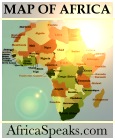The real cause of Zimbabwe's food crisis
Posted: Saturday, June 4, 2005By Stephen Gowans, gowans.blogspot.com
June 02, 2005
It's dangerous to comment on events that are distant in space or close in time. And Zimbabwe's food crisis is both these things – distant and recent and therefore ambiguous.
But there are some things that are less ambiguous than others.
Take the claim that agricultural production in this southern African country has shrunk. That's beyond dispute.
So too is the claim that, without outside assistance, many Zimbabweans will go hungry.
What is, however, a matter of disagreement – or should be -- is why.
To the Western press, Zimbabwe's food crisis is the inevitable outcome of Harare's challenge to decades of imperialist exploitation.
Of course, it's not put that way. Harare hasn't challenged imperialism. It has seized white-owned farms. Robert Mugabe, the country's president and leader of its national liberation struggle, is a power-hungry, anti-democratic, thug. He wants to reward his lackeys with stolen farmland, using a progressive land reform program as cover. Only a fool would fall for this.
Anti-imperialist struggles, seen through the lens of the Western press, are always dark, sordid and corrupt affairs, Zimbabwe's no less than any other. And those who challenge these campaigns of vilification, are no less vilified, than the main targets.
A recent Washington Post (June 2, 2005) account is emblematic of the Western media's dark, tendentious take on Zimbabwe's troubles.
"Once known as the breadbasket of southern Africa for it bounteous exports of corn and other staples, Zimbabwe has failed to produce enough food for its own population since the often violent land seizures began in 2000."
Lay aside the reality that the arable land of the former colonies of Western imperialist countries have, as a legacy of their previous colonial status, been largely given over to the production of a few cash crops for export, on land often owned by absentee landlords, not production of food by indigenous owners for internal consumption.
This, the Washington Post notes (Zimbabwe, "once known ... for it bounteous exports...") but assumes that an export-based cash crop economy can, in a pinch, be converted to "production of food for internal consumption."
Ignoring that point, and reading the analysis in the strictest literal way, there's nothing to dispute.
Harare did abandon the unworkable willing seller, willing buyer policy favored by its former colonial master, to pursue a land redistribution program to reverse the effects of imperialist exploitation. A food crisis did follow.
The cock crows; the sun rises. But does the cock cause the sun to rise?
Read the analysis again, but not in a strict, literalist, way, and the insinuation is that the roots of Zimbabwe's depressed agricultural production can be found in Harare's land redistribution campaign, and not surrounding – and vastly more significant -- events.
"Drought," the Post article acknowledges -- though at a point sufficiently removed from the critical pairing of the food shortage with farm seizures to make the calamity appear to be an interesting side note, but nothing more -- "has cut food production in several (neighboring) nations."
Indeed, drought, sufficient to lower food production in neighboring countries, should go a long way toward explaining why Zimbabwe can't produce enough.
But if drought isn't enough, add punitive sanctions imposed by Western countries in reaction to Zimbabwe's anti-imperialist challenge (a point the Washington Post either misses or ignores.)
Surely, both these things are significant.
The sanctions, as intended, have been crippling. Fuel – vital to the operation of farm machinery – is in short supply. The economy is in a shambles.
And it's not only Zimbabwe whose agricultural production is drought-ravaged and depressed. That of surrounding countries, whose governments haven't launched meaningful land reform programs, is too.
Only a miracle worker could produce a bounteous crop under drought conditions, in the midst of an economic war, whose objective is to force the government to cry uncle, and leave the legacy of past imperialist exploitation in place.
Accordingly, an honest account of the direct causes of Zimbabwe's agricultural troubles would dwell less on land redistribution, and more on drought and Western punishment for Harare's land reform programs.
The Washington Post, were it other than a mouthpiece for advancing the interests of US investors, financiers and shareholders, may have put it this way:
Once known as the breadbasket of southern Africa for it bounteous exports of corn and other staples, Zimbabwe has failed to produce enough since drought began to ravage southern Africa and Western countries undertook a campaign of economic warfare to cripple the impoverished country's economy, including its agriculture sector.
Don't expect letters to the editor, complaints to the newspaper's ombudsman, or the pressure of liberal media watchdogs to change this. (Indeed, expect no pressure at all; Zimbabwe has few friends in the West, including among nominally anti-imperialist groups.) The Washington Post, its sister publications, and the West's mass media, are not neutral. They never can be, anymore than a lion can live on grass.
The hunger of the poor of Zimbabwe is, as it has been for over a century, not the consequence of the backwardness of Zimbabweans, or the corruption of its national liberation leaders, but the consequence of Western exploitation.
And the iron heel brought down on any who challenge it.
Reprinted from:
http://gowans.blogspot.com/2005/06/real-cause-of-zimbabwes-food-crisis.htmlPrinter friendly version
Send page by E-Mail

Previous Page | Zimbabwe Watch | Historical Views | Home
NOTICE: All articles are the copyright property of the writers. In accordance with Title 17 U.S.C., section 107, some material on this site is provided without permission from the copyright owner, only for purposes of criticism, comment, scholarship and research under the "fair use" provisions of federal copyright laws. Visit: http://www.law.cornell.edu/uscode/17/107.shtml for more details. If you wish to use copyrighted material from this site for purposes of your own that go beyond 'fair use', you must obtain permission from the copyright owner.










